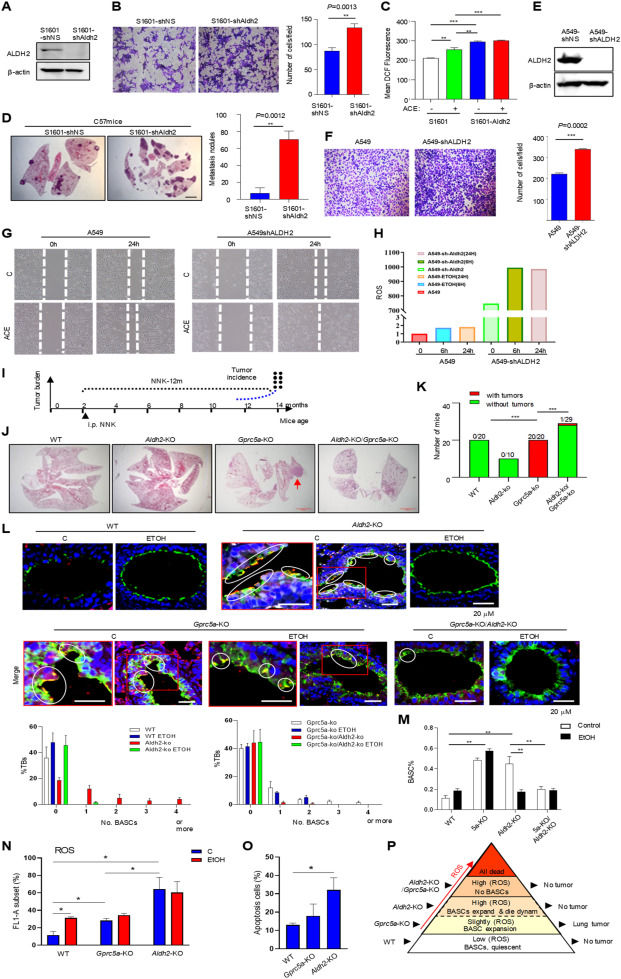
Aldh2 deficiency plays a dual role in lung tumorigenesis and tumor progression


Alcohol consumption contributes to global mortality and cancer development. Acetaldehyde (ACE), the oxidized metabolite of alcohol, is highly reactive towards DNA, resulting in DNA adducts. ACE can be detoxified to acetate by acetaldehyde dehydrogenase type 2 (ALDH2). ALDH2 deficiency can lead to ACE accumulation and DNA damage.1 Thus, ALDH2 deficiency is considered pro-oncogenic.2 Interestingly, there are more than 540 million people carrying a polymorphism of the enzyme, ALDH2.2∗ a dominant-negative variant that has substantially reduced enzymatic activity. This suggests that ALDH2 deficiency is well tolerated in humans. Surprisingly, a recent epidemiological report shows that the risk of homozygotes of ALDH2.2∗ carriers for IARC alcohol-related cancer and lung cancer is significantly reduced, rather than increased, in men.3 This is contradictory and perplexing since ACE or reactive oxidative species (ROS) is pro-oncogenic. However, there is no explanation.
